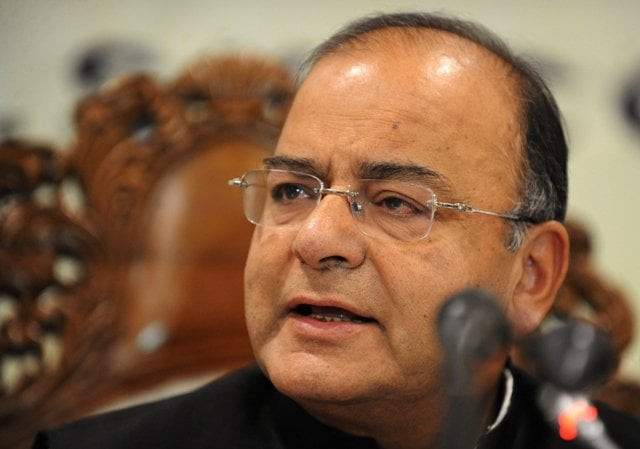Onus of normalising bilateral relations on Pakistan: Arun Jaitley
Jaitley says the message that India is interested in normalising relations with Pakistan has been “loud and clear”

Indian Finance Minister Arun Jaitley. PHOTO:AFP
Jaitley made the remarks at a talk held at the New York-based think-tank Council on Foreign Relations on the second day of his 10-day visit to the US. He was answering a question on India's foreign policy.
Read: Verbal duel ceases for now as Modi calls Nawaz
"With Pakistan, the border frequently becomes tensed, where there are exchanges on that border,” Jaitley said. “I think the message in the context of Pakistan is that India is interested in improving the relationship with Pakistan and therefore the onus of the responsibility for creating an environment in which the relationship can grow would also depend much more on Pakistan and the kind of provocation that comes from there."
Read: Pakistan weighs response to Modi’s remarks
Jaitley added that the message that India is interested in normalising relations with Pakistan and that the onus for this is on Pakistan has been “loud and clear”.
India and Pakistan have lately been involved in a war of words with Modi making statements criticising Pakistan during a recent visit to Dhaka.



















COMMENTS
Comments are moderated and generally will be posted if they are on-topic and not abusive.
For more information, please see our Comments FAQ